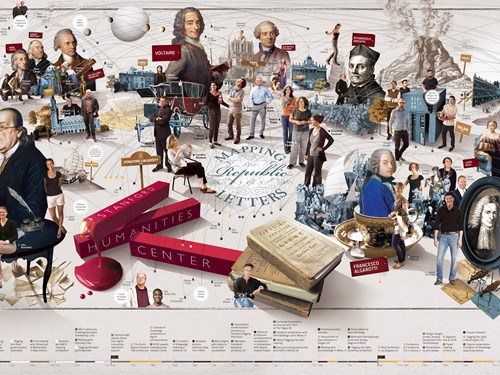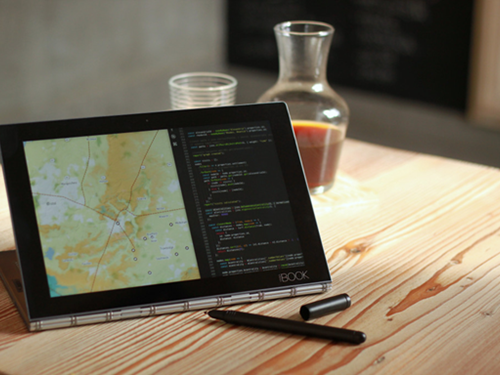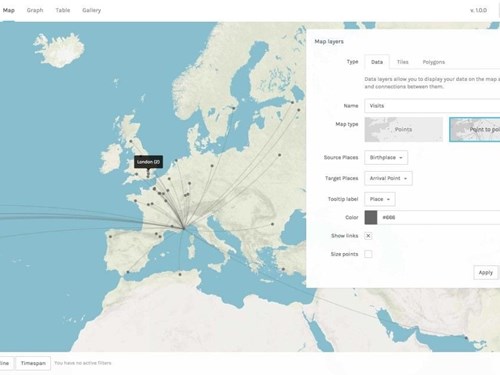Network analysis
Networks offer a dynamic way of exploring entities (nodes/nodes) and relationships between them (edges/edges). Nodes can be anything from people, places, and books to concepts or words, and can have a variety of attributes such as gender, role in an organization, or type or year of publication.
Using network analysis, it is possible to discover, for example, relationships between characters in literary works or the connections between scientists or other historical figures through correspondence. This method is also widely used in fields such as criminology (when examining relationships in criminal organisations) or epidemiology, where networks help to detect the spread of diseases. In political science, network analysis is used, for example, to examine the voting records of individual members of parliament. Analysis of social networks such as Facebook or Twitter can tell us a lot about the interconnectedness of different interest or political groups.
Network visualisation can be used either as a very useful exploratory tool to help reveal hidden and complex patterns and structures in textual sources, or as a form of visualisation to represent more complex relational structures.
One great example of the use of this method in the field of history and religious studies is the interdisciplinary Dissinet project, in which researchers from Masaryk University are examining, among other things, Inquisition records.
Network analysis tools
- GraphCommons Graph Commons is a collaborative platform for mapping, analyzing and visualizing networks.
- Gephi Gephi is the leading visualization and exploration software for all kinds of graphs and networks. Gephi is open-source and free.
- Palladio Palladio is a web-based tool that allows the user to upload structured data and then choose from a range of innovative spatial, temporal and network visualizations to analyze and present research results.
- NetworkX NetworkX is a Python package for creating, manipulating and studying the structure, dynamics and functions of complex networks.
- iGraph igraph is a collection of network analysis tools that emphasizes efficiency, portability and ease of use.
- Cytoscape Cytoscape is an open source software platform for visualizing complex networks and integrating them with any type of attribute data.


